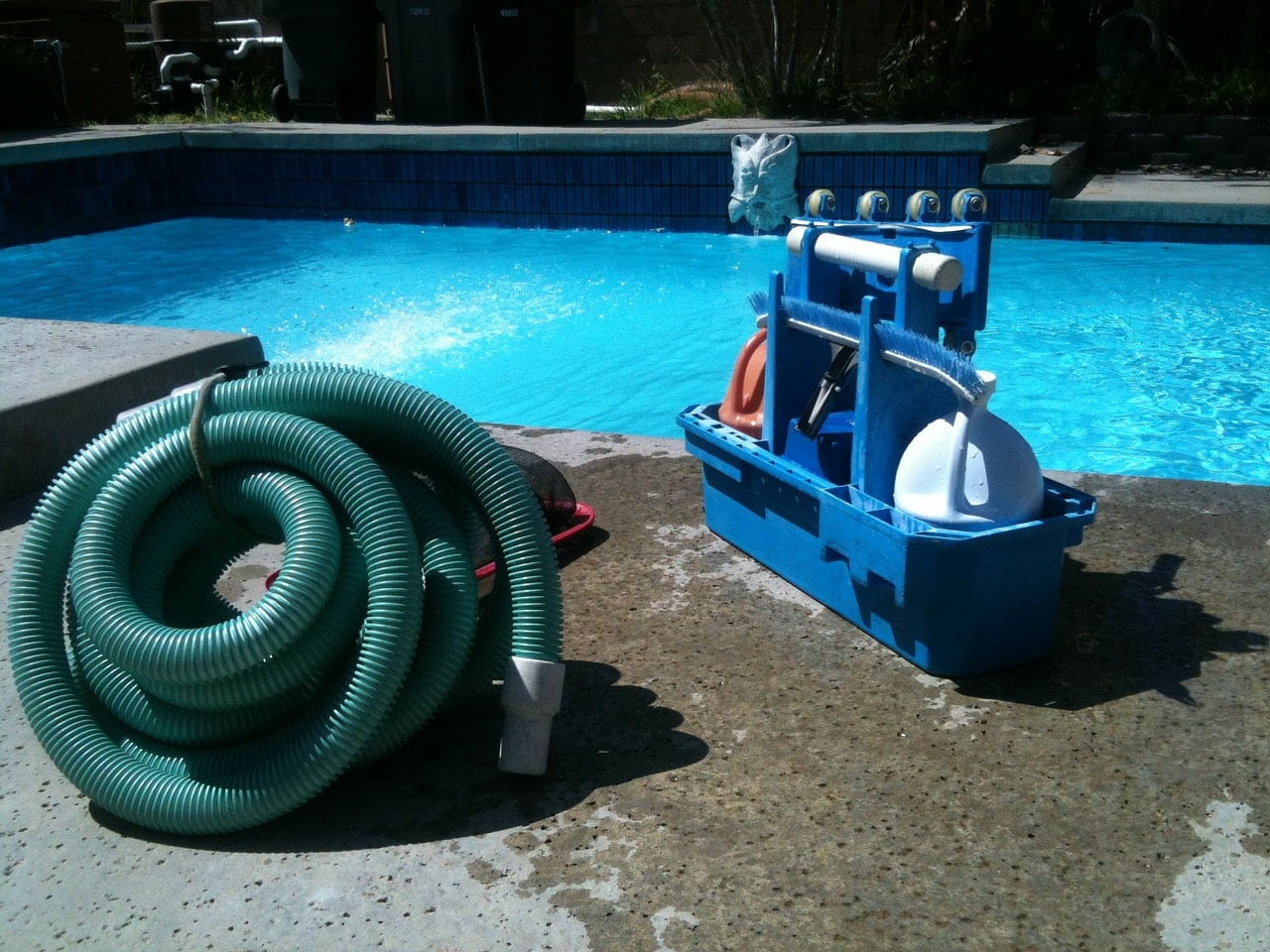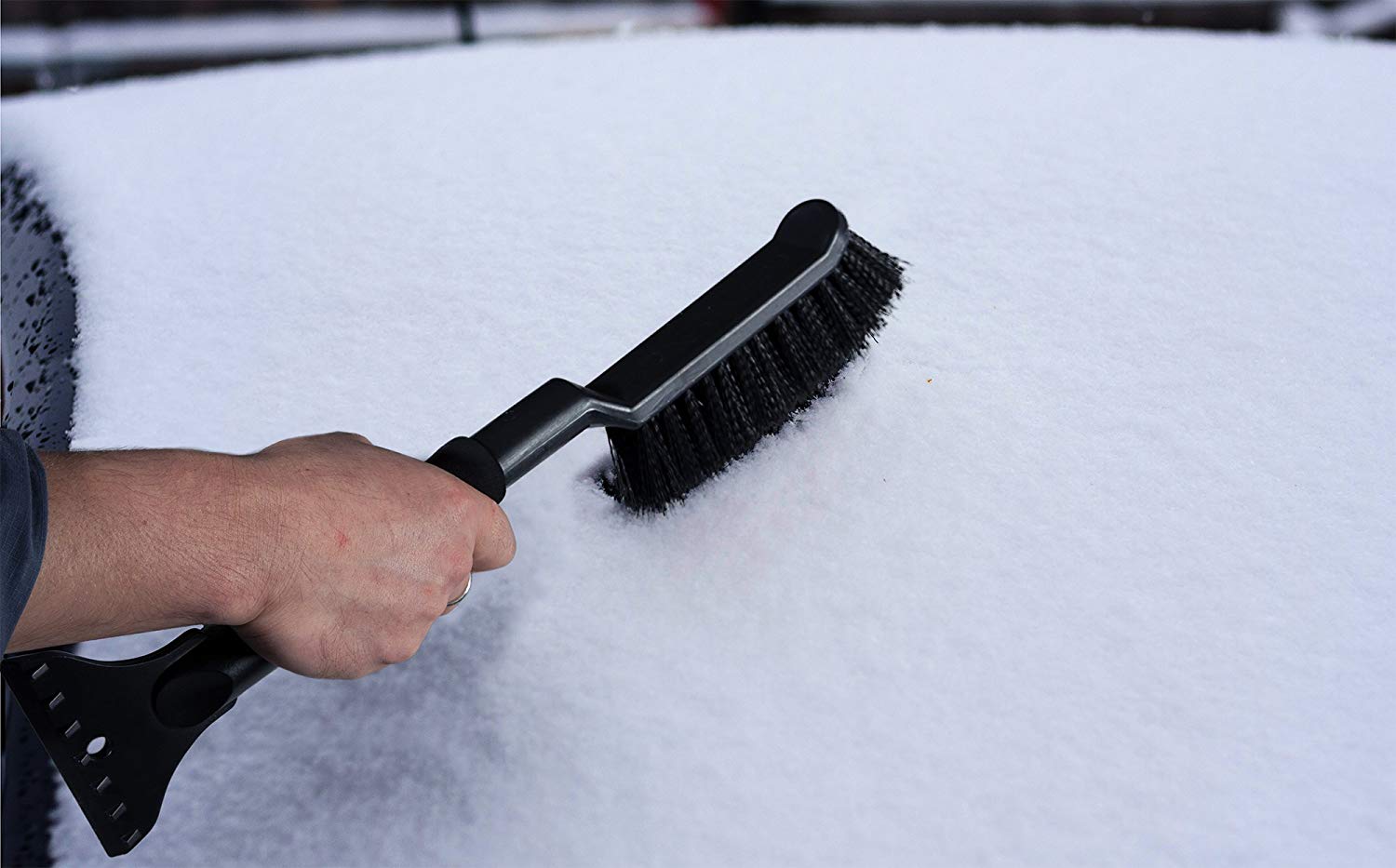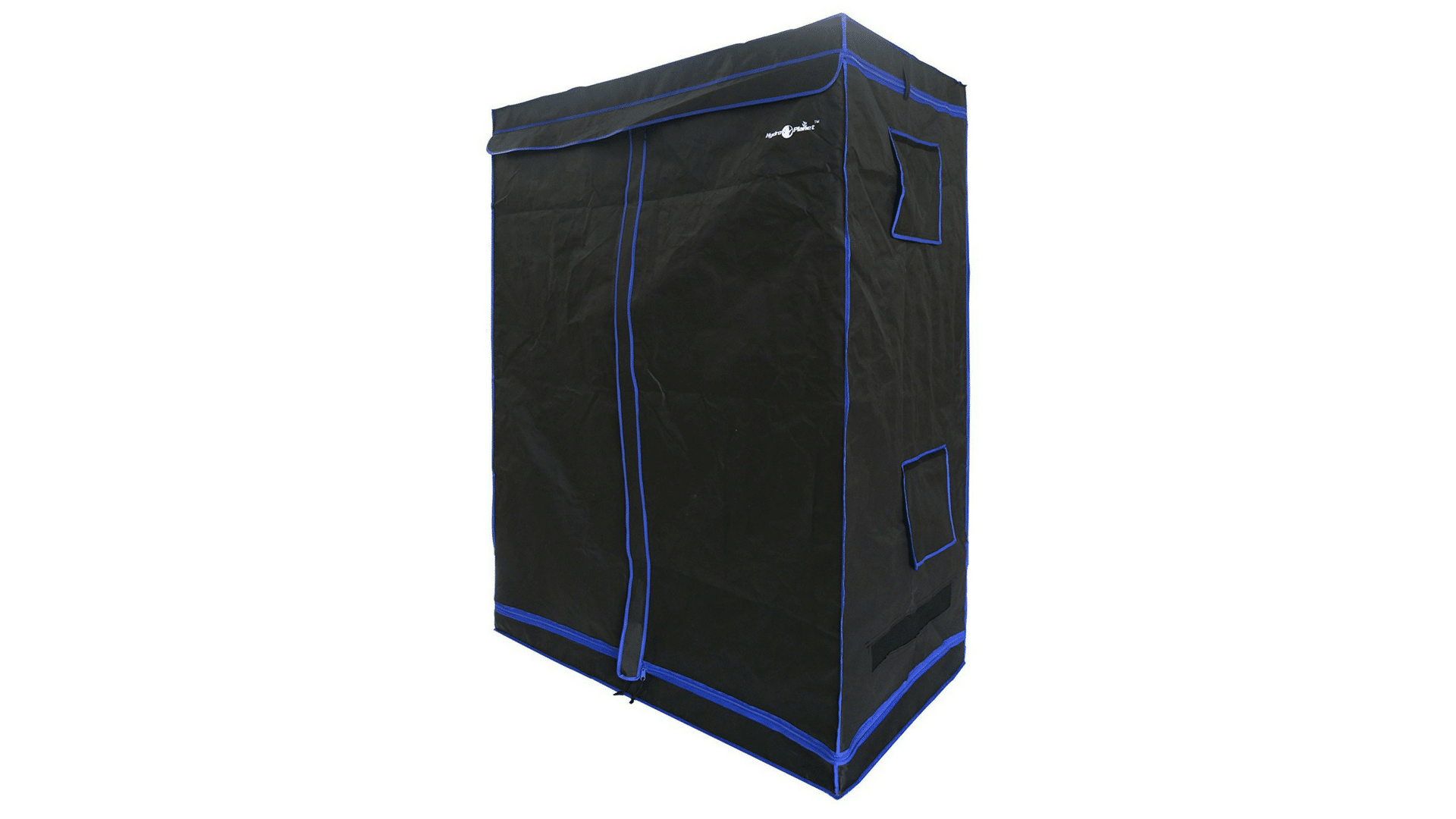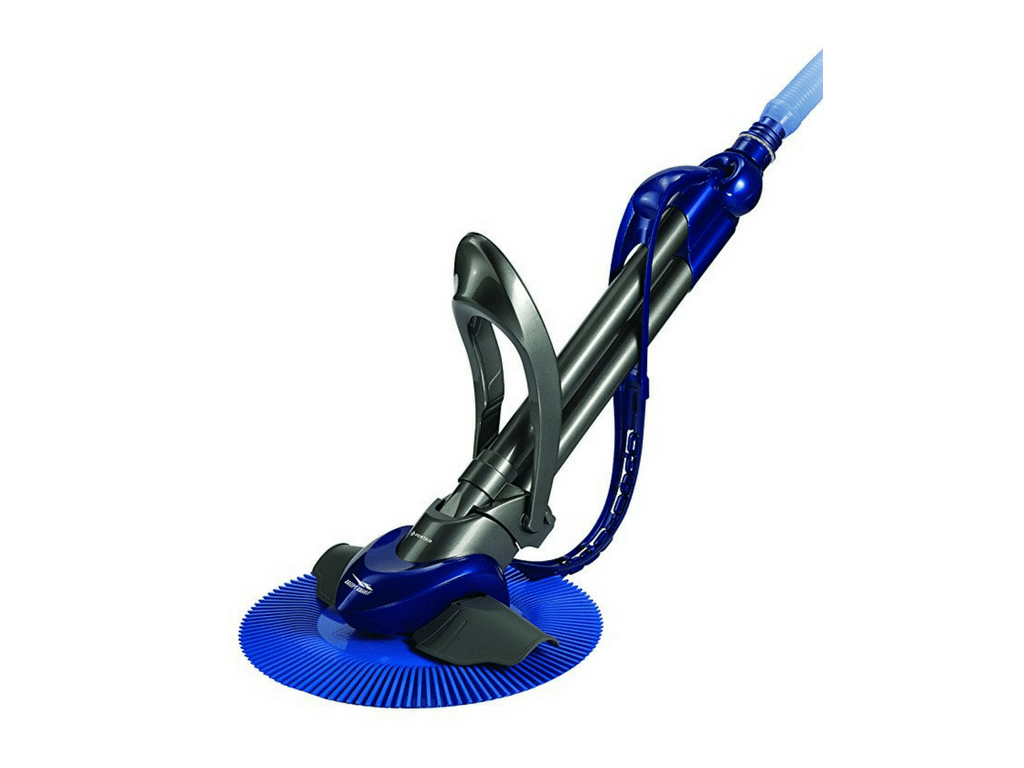A pool vacuum is a valuable appliance to have. It can help to make pool maintenance much easier. I’m going to go over some of the basics of both manual and also automatic pool vacuums. I’ll also cover the pros and cons of each type along with how pool vacuums work, how much they cost, maintenance, parts, and more. Let’s get started.
Pros & Cons of a Manual and Automatic Pool Vacuum
As with all products, there are advantages and disadvantages. Here are some of the pros and cons of a manual versus an automatic pool vacuum.
Manual Vacuum
Pro: Cheaper Than an Automatic Vacuum
Because manual pool vacuums are very simple and easy to use, their price is inexpensive. Although some are a few hundred dollars, others are as low as $30.
Con: Requires Manual Labor
As the name suggests, a manual pool vacuum requires manual labor by you. Instead of leaving it to clean all day, you have to take the time to push it around. It is similar to pushing your house vacuum around when cleaning a carpet.
Pro: Faster Than Cleaning by Hand
Although a manual pool cleaner requires physical labor, it is also much easier than cleaning by hand. Instead of using a pool brush and other pool accessories, you can clean your entire pool by pushing the pool vacuum around.
Con: Slower Than an Automatic Vacuum
Since this pool cleaner is run manually, it is slower than an automatic vacuum. This isn’t necessarily a problem, except that it takes time out of your day.
Automatic Vacuum
Pro: Easily Cleans Large Debris in Your Pool
Most automatic vacuums have a large debris inlet, which means it can easily sweep up large debris. Because it sweeps up a lot of debris as it moves, it shouldn’t take long to clean your entire pool.
Con: Automatic Vacuums Are More Expensive
Unfortunately, since the vacuum will be doing the work for you, the price will be higher. Some are cheaper, around $200, but others are thousands of dollars.
Pro: You Can Choose Either a Robotic Vacuum, a Pressure Vacuum, or a Suction Vacuum
Although this isn’t necessarily a pro, it can be nice to have options. Robotic cleaners are considered the best automatic pool vacuum on the market. They are, however, more expensive. Pressure pool vacuums will collect all types of debris, and will not clog up. Last are suction pool cleaners, which are considered the most simplest and cheapest automatic pool vacuums out there. If you are wanting a simple and cheap pool vacuum, the suction pol vacuum is the best option for you.
Con: It May Not Reach Corners, or Other Difficult Places to Clean
An automatic pool vacuum may not reach tight corners. With a manual pool vacuum, you can make it clean difficult areas, but automatic vacuums may not clean these areas. Other places, such as pool ladders and drains, may cause your pool vacuum to get stuck.
How Does a Pool Vacuum Work
Manual Pool Vacuum
First, you will need to attach the pool vacuum hose to the pool vacuum head. You will then hold the pole in one hand, and lower the vacuum, along with the hose, into the water. Keep the other end of the hose outside the pool, and plug it into the water intake nozzle of the filter skimmer. Once you plug it in, you may notice bubbles coming out of the pool vacuum head. These bubbles will stop coming out once the hose is full of water.
When it is full of water, the pool vacuum head will be flat and tight on the pool floor due to suction. You will then switch the filter nozzle to the intake mode, and guide the vacuum around using the telescopic pole. You should be able to see dirt and debris get sucked into the pool vacuum. When you are done vacuuming, remember to disconnect the hose from the filter.
Automatic Pool Vacuum
Suction Side Pool Vacuum
A suction side pool vacuum gets its name because of the suction that is created by the pool vacuum pump. This type of pool vacuum cleaner is mostly used with above ground pools. However, it can be used with inground pools. Suction side pool vacuums work when your pool pump is turned on.
Pressure Pool Vacuum
A pressure pool vacuum has a hose that you attach to the dedicated return line of your pool. Because the force of water causes pressure, the name pressure pool vacuum came to be. The pressure is used to move the cleaner around, as well as suck up dirt and debris.
Robotic Pool Vacuum
A robotic pool vacuum can scrub, clean, and vacuum your pool all at the same time. This is the most popular type of pool vacuum, since it cleans the entire pool on its own with no human help needed. It is an electric pool vacuum. Keep in mind that this type is more expensive, but overall it is worth the price.
Maintenance
Although the pool vacuum is part of maintaining your pool, the vacuum will need some maintenance as well. I’ll go over the proper maintenance for each pool vacuum here.
For a suction side pool vacuum, you will need to put a clean filter in it everytime you vacuum. Always disconnect the pool vacuum from the pump before cleaning the filter. During the winter months, remove the pool vacuum from the water, drain it, disconnect all hose sections, and store it indoors. Also, always remove the suction side pool vacuum before adding chemicals in the water.
For a pressure pool vacuum, you should never allow the filter bag to fill all the way. As soon as the bag is half fool, remove the debris from the bag. Make sure to keep the inline filter screen clean. Similar to a suction side pool vacuum, you should store this cleaner indoors during the winter.
For a robotic pool vacuum, you should always disconnect the unit’s power source before you remove the vacuum from the pool. When you remove it from the pool, make sure to drain it completely. Every once in a while you should empty and clean the filter in the vacuum. During the winter months, store the pool vacuum, as well as its electric cord, in a dry and covered location.
Cost of Each
As I mentioned earlier, the manual pool vacuum is going to be cheaper than the automatic pool vacuum. Some automatic pool cleaners may be a few hundred dollars, while others may be thousands of dollars. The average price for automated pool vacuums is around $200 to $600. For manual pool vacuums, the average price is around $100 to $300. However, some are as cheap as $20.
How Often Do They Need to Be Replaced?
With the proper maintenance, an automatic pool vacuum should last for 3 to 8 years. Manual pool vacuums have a similar lifespan. Keep in mind that before your pool vacuum reaches this date, parts on it may need replaced. To prevent this from happening, you should give it proper maintenance. This means storing it inside instead of outside, and draining it out before you put it away. Although you can leave the vacuum in the pool all the time during summer months, for best results you should take it out of the water. Also, keep in mind that cheaper pool vacuums may not last as long, or in other words the higher priced vacuums may last longer. However, the lifespan of your swimming pool vacuum cleaner mainly depends on how you care for it.
Different Parts/Accessories
For a manual pool vacuum, you will need a few other supplies in order to start sweeping. What you will need is a telescopic pole, which attaches to the pool vacuum head, a vacuum hose, and a scrub brush to attach to the pole.
Besides the swimming pool vacuum, you may want to buy some other pool care accessories. Here are a few items you may be interested in:
Pool Skimmer
A pool skimmer allows you to easily remove leaves, dirt, and insects that are floating in the water. Pool skimmers usually cost between $10 to $20.
Water Test Kit
A water test kit allows you to easily check the pH level of your pool water. The cheaper test kits are around $20, but others are $100.
Chlorine Tablets
Chlorine is used in most pools, and works well for keeping your pool clean and free from bacteria. The tablets are very easy to put in the water. You can also buy instead a two gallon bucket of liquid chlorine. Both options work just as good for keeping your pool clean.
Pool Brush
A pool brush is a good tool to have around for when your pool vacuum doesn’t clean the algae and dirt on the sides of your swimming pool. Pool brushes are easy to use, and most are very affordable.
Conclusion
A pool vacuum is one of the most beneficial items that you can have for your pool. I hope that this article helped you with your pool cleaning needs. I’ve gone over the basic including the differences of manual versus automatic pool vacuums, the pros and cons, cost and maintenance of each. I hope that this information keeps you enjoying your pool by spending minimal time maintaining it.
Related Article: Best Pool Vacuum: Our Top 10 Favorites to Choose From












I think auto vacuum cleaner is better than a manual cleaner. Because auto vacuum cleaner is an easy function and anyone can easily use it. Thanks for sharing your idea.